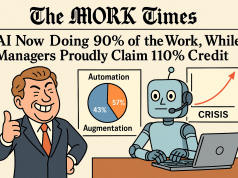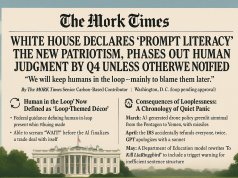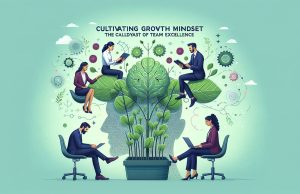In an era punctuated by constant connectivity and the melding of our personal and professional realms, the traditional notion of work-life balance is undergoing a profound transformation. No longer does the term simply refer to an equitable distribution of hours between our desks and our homes—it has expanded to encapsulate a holistic view of what it means to lead a successful, fulfilling life within the ever-evolving landscape of the modern-day workplace. At The Work Times, we explore the multiple facets of this complex concept, and how it continues to shape the workforce of today and tomorrow.
**Historical Context**
The pursuit of work-life balance is far from a recent phenomenon. In the latter part of the 20th century, the delineation between ‘work’ and ‘life’ was markedly more pronounced; one clocked in and out at set times, and home computers, let alone smartphones, were not the portals to the office they are today. But as technology has advanced, so too has the omnipresence of work in our lives. Emails follow us long after we leave the office, and virtual meetings can be held anywhere, any time. The tide of always-on connectivity has led many to question the very framework of what constitutes a balanced life.
**Cultural Shifts**
Driven by millennials and now, Gen Z, the workforce is reassessing what it values: fulfillment over financial gain, well-being over workload. Companies are increasingly judged on their commitment to employee mental health and the robustness of their work-life balance policies. This shift not only challenges traditional success metrics but also highlights a correlation between flexible work arrangements and increased job satisfaction and productivity. The working world is awakening to the fact that success is multidimensional and that an employee’s well-being is intrinsically tied to their performance.
**Gender Dynamics**
Traditionally, expectations around work and home roles have been heavily gendered, with women often bearing the brunt of ‘double duties’. However, as these norms are challenged and dismantled, both men and women are advocating for equitable distribution of domestic responsibilities and work opportunities. Despite progress, the journey towards complete gender parity in achieving work-life balance is ongoing and fraught with societal and structural challenges.
**The Gig Economy and Freelancing**
The burgeoning gig economy and the rise of freelancing have further disrupted the 9-to-5 mold. While these arrangements afford autonomy and often, a better work-life blend, they also bring unpredictability and the absence of traditional job securities and benefits. Gig workers must navigate income variability with their need for flexibility, often redefining what balance means in the process.
**Remote Work and Flexibility**
The COVID-19 pandemic acted as a catalyst for remote work, propelling it into the mainstream and forcing a reevaluation of the need for physical office spaces. Flexibility has taken center stage, with many employees relishing the ability to design their work schedules around their lives, rather than vice versa. Companies are now tasked with embracing these changes sustainably, ensuring that the pendulum swing towards flexibility doesn’t compromise productivity or team cohesion.
**Policy Perspective**
In response to these shifts, forward-thinking policies are essential. Parental leave, flexible work arrangements, right-to-disconnect legislations, and mental health days are just some strategies that can underpin a balanced workforce. Such policies not only support individual well-being but also foster a more inclusive and productive working environment, ultimately benefiting society as a whole.
**Personal Stories**
From the executive who has restructured her workday to make time for meditation and family, to the entrepreneur who has forgone the traditional office setting for a nomadic lifestyle, personal stories of redefined success abound. These narratives serve as touchstones for those looking to chart their own paths to balance and underscore the individual nature of the quest.
**Call to Action**
As we stand at the crossroads of traditional work structures and emerging paradigms of success, it’s time for a candid self-assessment. What does success mean to you? How does work-life balance factor into your vision? It’s time to negotiate not just with your employer, but with yourself. Advocate for a life that accommodates your professional ambition and personal well-being in equal measure.
This dialogue, championed by The Work Times, is not merely a conversation but a movement towards a reimagined definition of success—one that aligns with the multifaceted aspirations of a diverse, educated, and engaged demographic. It is a call to reshape our work habits, company cultures, and societal norms, in pursuit of a truly fulfilled and balanced life.




























